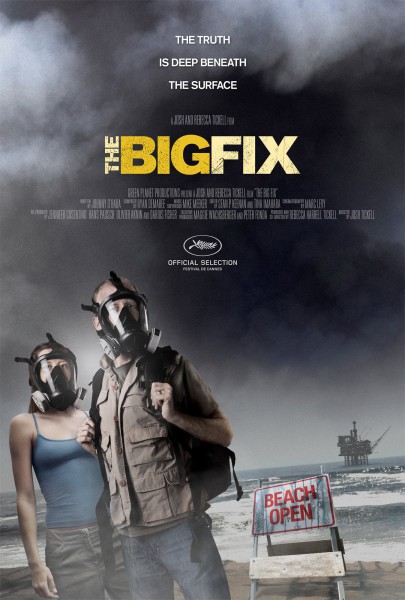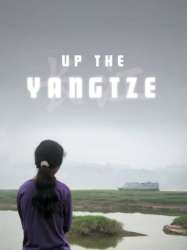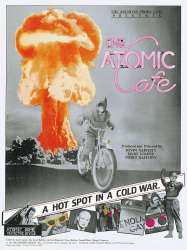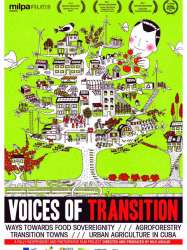The Big Fix is a american film of genre Documentary directed by Rebecca Harrell Tickell with Josh Tickell
The Big Fix (2011)

If you like this film, let us know!
Length 1h30
OriginUSA
Genres Documentary
Themes Environmental films, Documentary films about environmental issues, Documentary films about technology
Rating76%










The Big Fix is a 2012 documentary film about two filmmakers, Josh and Rebecca Tickell, as they travel along the coast of the Gulf of Mexico meeting the residents whose lives were changed by the 2010 BP Oil Spill. The film argues that BP has utilized the oil dispersant Corexit in the Gulf to create the illusion that the Louisiana beaches are safe and the water (and seafood) uncontaminated.
Actors
Comments
Leave comment :
Suggestions of similar film to The Big Fix
There are 93 films with the same actors, 2 films with the same director, 8861 with the same cinematographic genres, 1027 films with the same themes (including 136 films with the same 3 themes than The Big Fix), to have finally 70 suggestions of similar films.If you liked The Big Fix, you will probably like those similar films :

Fuel (2008)
, 1h52Directed by Josh Tickell
Origin USA
Genres Drama, Documentary
Themes Environmental films, Documentary films about environmental issues, Documentary films about technology
Actors Josh Tickell, Larry Hagman, Sheryl Crow, Woody Harrelson, Neil Young, Larry David
Rating72%






Pump (2014)
, 1h28Directed by Rebecca Harrell Tickell, Josh Tickell
Origin USA
Genres Documentary
Themes Environmental films, Documentary films about environmental issues, Documentary films about technology
Rating75%






Nuclear Tipping Point (2010)
, 56minutesGenres Documentary
Themes Environmental films, Documentary films about environmental issues, Documentary films about war, Documentary films about historical events, Documentary films about nuclear technology, Documentary films about technology, Political films
Rating67%






Up the Yangtze (2007)
, 1h33Directed by Yung Chang
Origin Canada
Genres Documentary
Themes Environmental films, Documentary films about environmental issues, Documentary films about politics, Documentary films about technology, Political films
Actors Yung Chang
Rating74%





The setting of the film is a riverboat cruise ship floating up the Yangtze river. Two young people are the focus of the film as they work aboard the ship. One is a sixteen-year-old girl from a particularly poor family living on the banks of the Yangtze near Fengdu, named "Cindy" Yu Shui. She is followed as she leaves her family to work on one of the cruise ships serving wealthy western tourists at the same time as her family is being forced from their home due to the flooding that accompanied the building of the dam. The film shows her acclimatization to the consumer economy of tourism as well as modern technology of the cruise ships, juxtaposed with her family and other older citizens who are displaced from a rural lifestyle to cities where they must pay for the vegetables they used to grow on their own.

Missile (1988)
Directed by Frederick Wiseman
Genres Documentary
Themes Environmental films, Documentary films about environmental issues, Documentary films about war, Documentary films about historical events, Documentary films about nuclear technology, Documentary films about technology, Political films
Rating71%






The Atomic Cafe (1982)
, 1h26Directed by Kevin Rafferty
Origin USA
Genres Documentary, Historical
Themes Environmental films, Documentary films about environmental issues, Documentary films about war, Documentary films about historical events, Documentary films about nuclear technology, Documentary films about technology, Political films
Rating75%





The film covers the beginnings of the era of nuclear warfare, created from a broad range of archival film from the 1940s, 1950s and early 1960s - including newsreel clips, television news footage, U.S. government-produced films (including military training films), advertisements, television and radio programs. News footage reflected the prevailing understandings of the media and public.
 , 1h52
, 1h52Origin USA
Genres Documentary
Themes Environmental films, Documentary films about environmental issues, Documentary films about war, Documentary films about historical events, Documentary films about nuclear technology, Documentary films about technology
Rating66%






Pandora's Promise (2013)
, 1h27Origin USA
Genres Documentary
Themes Environmental films, Documentary films about environmental issues, Documentary films about nuclear technology, Documentary films about technology
Rating72%






Voices of Transition (2012)
, 1h5Origin France
Genres Documentary
Themes Environmental films, La mondialisation, Films about the labor movement, Documentary films about business, Documentary films about environmental issues, Documentary films about technology, Documentaire sur le monde du travail, Disaster films
Rating75%





Using interviews and overlays of graphics and text, the film presents the current problems facing industrial agriculture. It explores why in the interviewees' view the current industrial model is not up to the task of feeding the world's people. According to the film every calorie of energy contained in a food source currently takes between 10 and 20 calories of crude oil in the production of fertilizers and transportation to produce, leading to a strong dependence of the cost of food on oil prices. As a result of peak oil and increasing oil prices this dependence will lead to ever increasing food prices. According to the film, this dependence already represents a significant weak-spot in the global food supply chain. Additionally, agriculture is already responsible for 40% of greenhouse gas emissions, contributing to climate change. Furthermore, the film argues that the overuse of inorganic fertilizers has been responsible for the loss of soil fertility and threatens the complete loss of usable soil within the next decades through soil erosion and sinking crop yields. These effects, according to the film, can only be partly mitigated by the increased use of those same fertilizers. The loss of workplaces, the concentration of land in the hands of a few (allegedly a farm closes every 23 minutes in France) as well as the dependence on large corporations are enumerated as side effects of the industrialisation of agriculture since the 1920s. Companies, such as Monsanto and Bayer, control everything from seed stock to fertilizers and the necessary chemical mixes for hybrid plants, thereby controlling the entire supply chain. The film argues that this development was supported through subsidies from the World Bank. Interviews with Vandana Shiva, the founder of the Transition Towns movement Rob Hopkins and various agricultural experts serve to argue this viewpoint. The dependence on crude oil is illustrated through the example of the wholesale food market in Rungis.
 Connection
Connection



